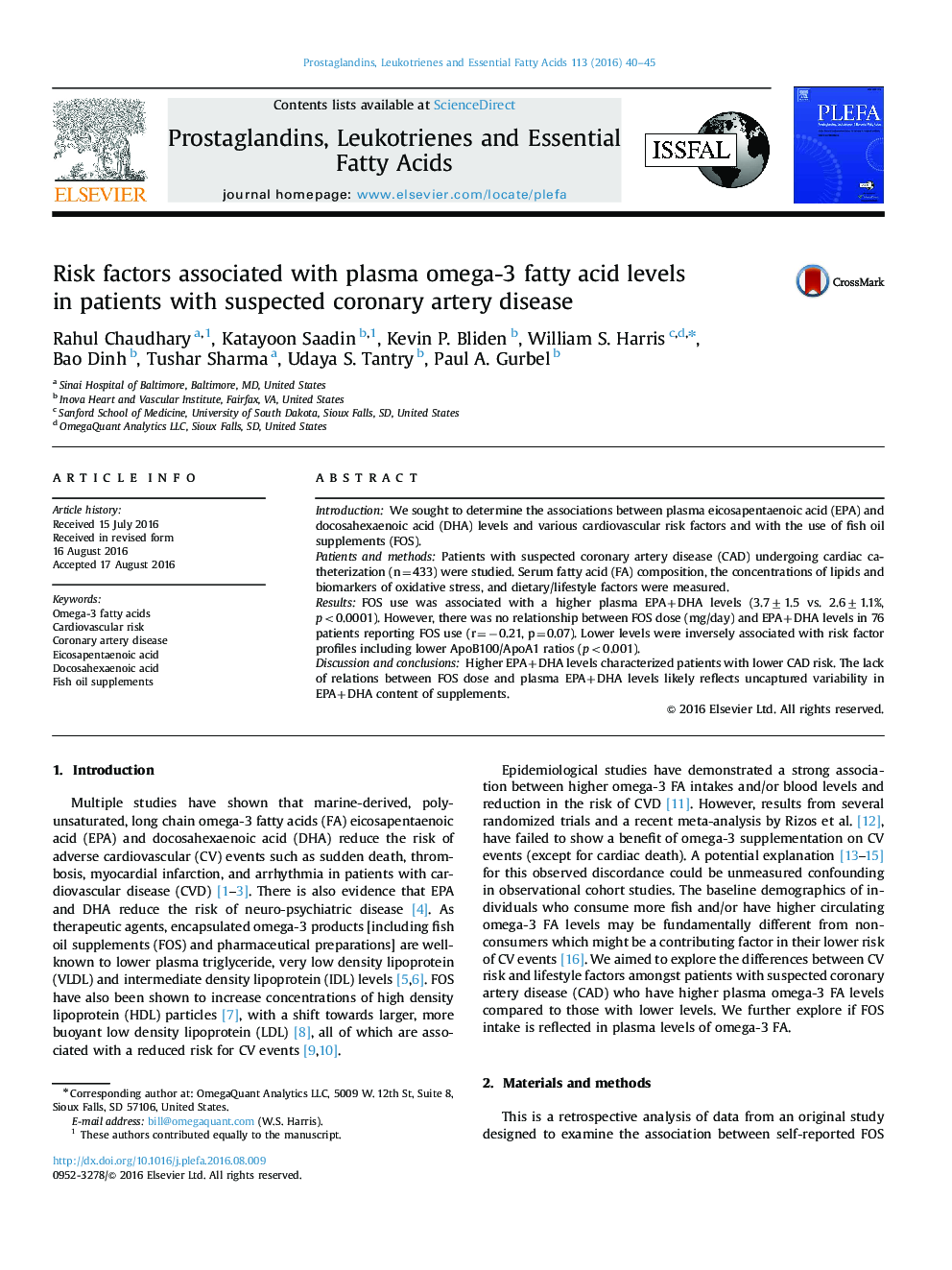| Article ID | Journal | Published Year | Pages | File Type |
|---|---|---|---|---|
| 2777418 | Prostaglandins, Leukotrienes and Essential Fatty Acids (PLEFA) | 2016 | 6 Pages |
•Plasma n-3 levels were measured in patients with suspected coronary artery disease.•Levels were correlated with CHD risk factors and fish oil supplement intake.•Fish oil supplement use was associated with higher n-3 levels.•The reported dose of fish oil did not correlate with plasma levels.Higher.•Higher n-3 levels were linked a generally more favorable risk factor profile.
IntroductionWe sought to determine the associations between plasma eicosapentaenoic acid (EPA) and docosahexaenoic acid (DHA) levels and various cardiovascular risk factors and with the use of fish oil supplements (FOS).Patients and methodsPatients with suspected coronary artery disease (CAD) undergoing cardiac catheterization (n=433) were studied. Serum fatty acid (FA) composition, the concentrations of lipids and biomarkers of oxidative stress, and dietary/lifestyle factors were measured.ResultsFOS use was associated with a higher plasma EPA+DHA levels (3.7±1.5 vs. 2.6±1.1%, p<0.0001). However, there was no relationship between FOS dose (mg/day) and EPA+DHA levels in 76 patients reporting FOS use (r=−0.21, p=0.07). Lower levels were inversely associated with risk factor profiles including lower ApoB100/ApoA1 ratios (p<0.001).Discussion and conclusionsHigher EPA+DHA levels characterized patients with lower CAD risk. The lack of relations between FOS dose and plasma EPA+DHA levels likely reflects uncaptured variability in EPA+DHA content of supplements.
